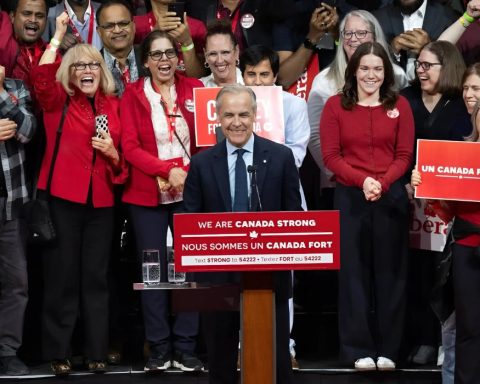But is it green?
That’s the golden question many investors have for the thousands of companies claiming to be sustainable in one way or another. In the United Kingdom, investors and the public may soon be a bit more certain of companies’ green credentials thanks to new laws coming into effect in May.
Britain’s financial regulator, the Financial Conduct Authority, will require firms’ public communications to be clear, fair and not misleading. Regulators around the world are trying to tackle the problem of greenwashing with new rules and enforcement mechanisms. In January, the European Parliament approved a new directive that bans greenwashing and misleading advertising.
As greenwashers are expected to face increasing and more frequent fines in certain jurisdictions, a plastic-prevention start-up called CleanHub recently ranked the largest greenwashing fines given out to date. Rolling into first place was Volkswagen, with US$34.69 billion in penalties issued over a number of years in different countries for using software in its cars that reported emissions as lower than they were.
The top three are rounded out by Toyota, which paid US$180 million in fines in 2021 for failing to report defects in its cars’ tailpipe emissions to the Environmental Protection Agency, and DWS, a Deutsche Bank-controlled investment firm, which forked out US$25 million last year in a settlement after U.S. regulators alleged that the investment firm had misstated its environmental, social and governance (ESG) investing.
“Given how substantial these fines are, it’s clear that regulators are trying to send a message to companies,” CleanHub’s vice-president of marketing, Nikki Stones, said in a statement. “The days of quiet punishments are over when it comes to greenwashing – brands that intentionally mislead consumers over green initiatives will be severely penalised moving forward.”
That being said, after the top two the fines drop off significantly, revealing that historically, companies have not been held to account for making misleading green claims. Many business leaders claim they don’t understand how to make their companies more sustainable, let alone how to communicate how green their companies are. Last year, 72% of business executives surveyed by the Harris Poll, an American market research firm, agreed that “while everyone says they want to advance sustainability efforts, no one knows how to actually do it.” And worse, 59% of American executives surveyed “admitted to overstating – or inaccurately representing – their own sustainability activities.”
But all of this could soon change as regulators slowly start to impose more greenwashing rules. In Canada, the federal government is making amendments to the Competition Act, which currently bars misleading advertising, to ban greenwashing specifically, although some environmental groups say the changes don’t go far enough. The Competition Bureau is currently investigating RBC and the Canadian Gas Association over greenwashing allegations. In 2022, Keurig Canada paid $3 million in fines to the bureau to settle concerns over the company’s misleading claims about the recyclability of its coffee pods.
In the United States last year, the Securities and Exchange Commission adopted a rule that requires registered funds with names that suggest they’re focused on ESG to align at least 80% of their assets in sustainable investments.
Could we be seeing the beginning of the end of the age of the greenwasher? Stones thinks so.
“We expect to see more greenwashing fines in the coming years,” she said. “To swerve these penalties, companies need to make sure all of their environmental claims and initiatives are transparent, truthful and are backed up with evidence.”
Here are the top 10 greenwashing fines from CleanHub:
| Company | Fine (US$) | Reason for fine |
| Volkswagen | $34.69 billion | The car company paid these fines in several countries from 2017 to 2020 for implementing software that falsified data and helped evade emissions tests on its vehicles. |
| Toyota | $180 million | Delayed sharing of emissions-related reports. Paid these fines in the United States in 2021. |
| DWS | $25 million | The Deutsche Bank-controlled investment firm paid these fines in a settlement with the US Securities and Exchange Commission for potentially marketing ESG funds as “greener” than they actually were. |
| Keurig | $12.2 million | The coffee pod company paid this fine to Canadian regulators for making misleading claims about its single-use coffee pods, suggesting they were recyclable when recyclers don’t widely accept them |
| Eni | $5.6 million | The Italian energy company paid these penalties to Italian regulators for claiming its palm oil diesel was “green.” |
| Kohl’s & Walmart | $5.5 million (combined) | The retail giants paid this collective settlement with the Federal Trade Commission in 2022 for claiming their products were made from environmentally friendly bamboo when they were made from other materials. |
| Goldman Sachs | $4 million | The investment bank agreed to pay these finds to the SEC in 2022 for failing to follow ESG investment policies and misleading its customers. |
| BNY Mellon | $1.5 million | The Bank of New York Mellon paid these fines to the SEC For failing to implement ESG policies and overstating the ESG value of its funds. |
| H&M & Decathlon | $430,500 and $530,000 | These two clothing retailers made these donations to sustainable causes in 2022 after making unsubstantiated claims on their labels. |





